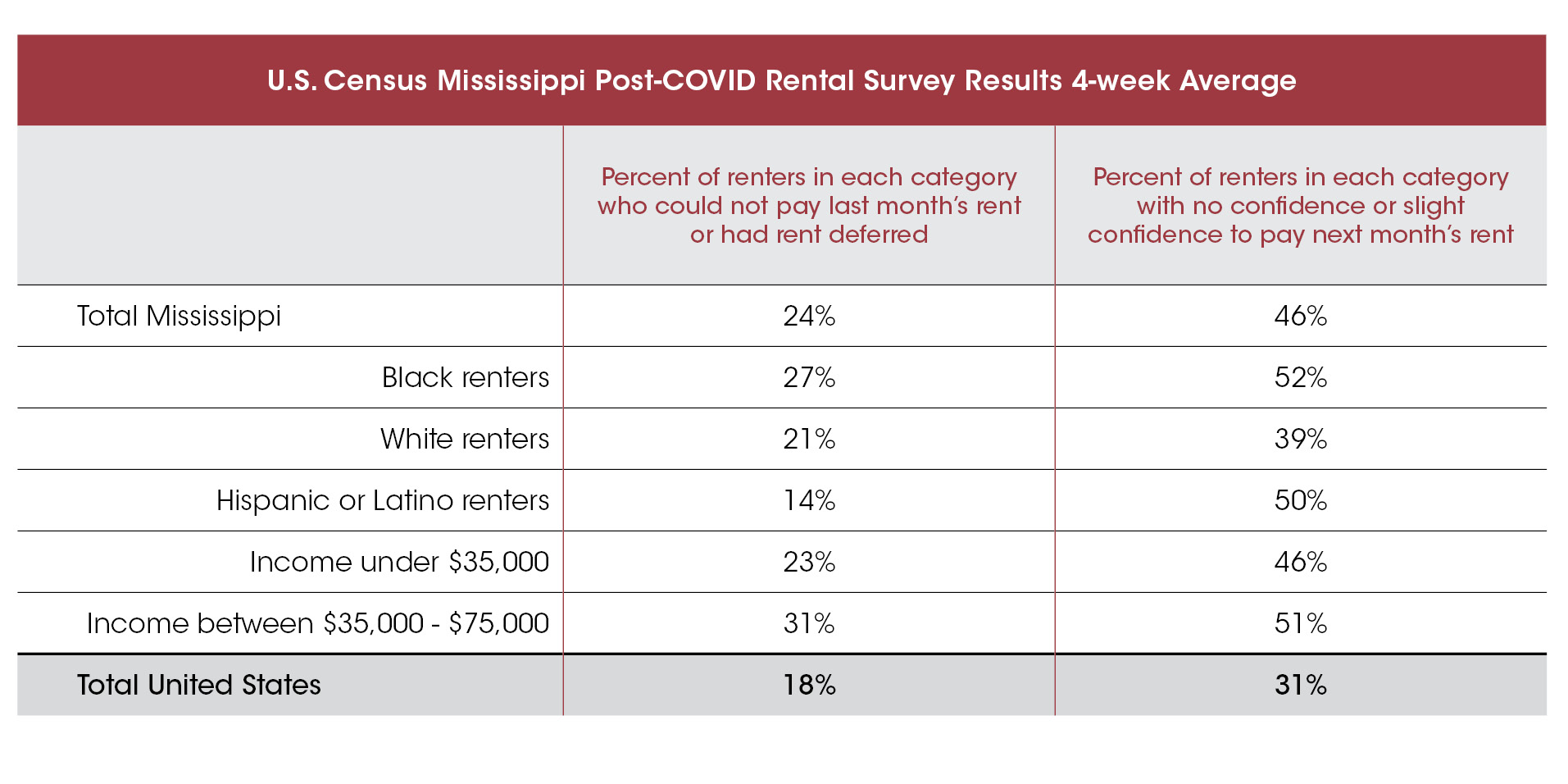Housing Stability for Mississippi Renters Continues to Be In Jeopardy From COVID-19 as Protections Expire
June 16th, 2020
Nearly one in two renters have little to no confidence in their ability to pay rent next month, and almost a quarter could not pay rent last month, according to a new survey of Mississippi renters over the last four weeks.[1] These results portend a potential eviction crisis if the state does not provide significant rental assistance as Mississippi’s eviction moratorium expired on June 1. The federal CARES Act provided protection from eviction for renters who live in housing that has federally-backed financing for 120 days, however, those protections are set to expire in late July. This is roughly the same time as the scheduled end of the CARES Act unemployment supplement further squeezing the budgets of households that have lost income due to COVID-19.
These new data have been released by the U.S. Census Bureau from their new Household Pulse survey that collects data on the social and economic effects of the COVID-19 pandemic. The table below shows the number and percentage of Mississippi renters surveyed and how many renters could not pay rent last month and have little to no confidence in their ability to pay next month’s rent. Mississippi renters are faring worse than those in the United States as a whole where an average of only 18% of renters said they could not pay last month’s rent or had their rent deferred and 31% have little to no confidence of paying next month’s rent.
As with many other aspects of the COVID-19 crisis, Black residents have been most affected by the housing instability caused by the pandemic. Over the four weeks of the survey an average of 27% of Black renters in Mississippi responded that could not pay their rent last month and over half (52%) responded that they had little to no confidence in being able to pay next month’s rent. In contrast, 21% of white respondents reported they could not pay last month’s rent and 39% reported they had little to no confidence in paying next month’s rent. While this shows disparities in housing security by race, the large numbers indicate an impending housing crisis for both groups.
In the near term, housing stability is critical to an effective response to the pandemic. Health officials continue to recommend both sick persons shelter in place and healthy persons stay home when possible. Long term, reliable, quality housing is also important for the economic stability of renters and their neighborhoods. Evictions are detrimental to a person’s credit for seven years, affecting not only one’s ability to get housing in the future, but is also to obtaining affordable credit and building wealth. Without rental assistance, COVID-19 will have long-term negative consequences for housing stability as well as widening the wealth gap.
[1] Four week average of survey results from the U.S. Census Bureau, Household Pulse Survey Data Tables, retrieved June 5, 2020 https://www.census.gov/programs-surveys/household-pulse-survey/data.html






